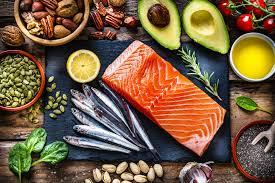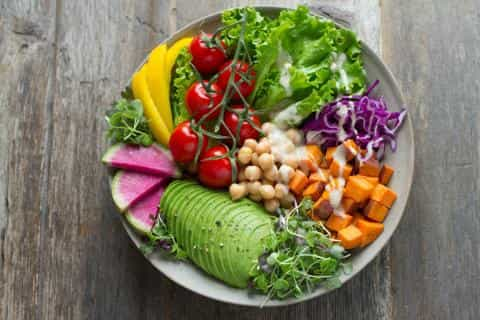
Nutrition Basics for Runners: A Summary
Understanding the science behind food helps runners optimize their diet.
The three key macronutrients are carbohydrates, fats, and proteins, with a diverse diet also providing essential micronutrients and antioxidants.
Carbohydrates
- Primary energy source, especially for long-distance running.
- Broken down into glucose for immediate use or stored as glycogen.
- Important during high-intensity exercise and shorter runs.
- Recommended intake: 45-65% of total daily calories.
Fat
- Secondary energy source, crucial during long-distance, lower-intensity runs.
- Stored as triglycerides, converted to glucose through fat oxidation.
- Less efficient than carbohydrates for high-intensity exercise.
- Recommended intake: 20-30% of total daily calories, mainly from unsaturated fats.
- Supports healthy joints, hormone production, nerve function, and absorption of vitamins A, D, E, and K.

Protein
- Not a primary energy source but essential for muscle growth, tissue repair, and recovery.
- Recommended intake: 1.4-2.0 grams per kg of body weight per day.
Micronutrients
- Essential for metabolic function and overall health.
- Key micronutrients for runners:
- Calcium: Bone health and muscle contraction.
- Vitamin D: Bone health and muscle function.
- Iron: Red blood cell production, important for oxygen delivery.
- Antioxidants: Reduce cell damage from intense exercise.
General Advice
- Consume a variety of whole foods to meet micronutrient needs.
- Consult a healthcare professional before starting new supplements.
Eating a balanced diet rich in these nutrients supports running performance, muscle function, and recovery.








